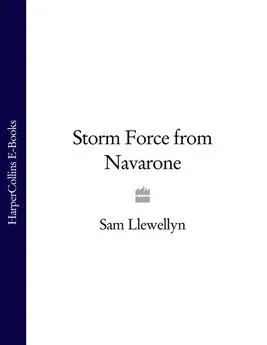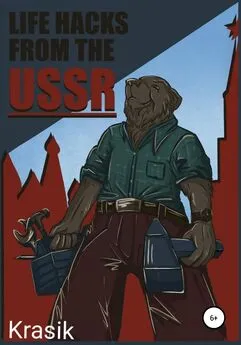Sam Llewellyn - Storm Force from Navarone
- Название:Storm Force from Navarone
- Автор:
- Жанр:
- Издательство:неизвестно
- Год:неизвестен
- ISBN:нет данных
- Рейтинг:
- Избранное:Добавить в избранное
-
Отзывы:
-
Ваша оценка:
Sam Llewellyn - Storm Force from Navarone краткое содержание
Storm Force from Navarone - читать онлайн бесплатно ознакомительный отрывок
Интервал:
Закладка:
SAM LLEWELLYN
Storm Force from Navarone
The sequel to Alistair MacLean’s
Force 10 from Navarone

To David Burnett
PROLOGUE March 1944 PROLOGUE March 1944 ONE Sunday 1000-1900 TWO Sunday 1900-Monday 0900 THREE Monday 0900-1900 FOUR Monday 1900-Tuesday 0500 FIVE Tuesday 0500-2300 SIX Tuesday 2300-Wednesday 0400 SEVEN Wednesday 0400-0500 EPILOGUE Wednesday 1400 About the Author Also by Sam Llewellyn Copyright About the Publisher
The radar operator said, ‘Contact. Three bloody contacts. Jesus.’
The Liberator dipped a wing, bucking heavily as it carved through one of the squalls of cloud streaming over the Atlantic towards Cabo Ortegal, at the top left-hand corner of Spain. ‘Language,’ said the pilot mildly. ‘Bomb-aimer?’
Down in the nose the bomb-aimer said, ‘Ready.’ The pilot’s leather-gloved hand went to the throttles. The note of the four Pratt and Whitney engines climbed to a tooth-rattling roar. The pilot eased the yoke forward. Girders creaking, the Liberator bounced down into the clouds.
Vapour streamed past the bomb-aimer’s Perspex window, thick and grey as coal smoke. At five hundred feet it became patchy. There was sea down there: grey sea, laced with nets of foam.
The bomb-aimer’s mouth was dry. Just looking at the heave of that sea made you feel sick. But there was something else: a wide, smooth road across those rough-backed swells, as if they had been ironed -
‘See them yet?’ said the pilot.
The bomb-aimer could hear his heart beat, even above the crackle of the intercom and the roar of the engines. ‘See them,’ he said.
At the end of the smooth road three long, low hulls were tearing chevrons of foam from the sea. The hulls were slim and grey, with streamlined conning towers. Slim, grey sitting ducks.
‘They’re bloody enormous,’ said the radar operator, peering over the pilot’s shoulder. ‘What the hell are they?’
They were submarines, but submarines twice the size of any British or German craft the pilot had seen in four years of long flights over weary seas that had made him an expert on submarines. They were indeed bloody enormous.
The pilot frowned at the foam-crested waves of their wakes. Hard to tell, of course, but they looked as if they were making at least thirty-five knots. If they were theirs, thought the pilot, they could really do some damage. Hope they’re ours -
Glowing red balls rose lazily from the conning towers and flicked past the cockpit canopy.
‘Theirs,’ said the pilot, slamming the plane into a tight 180° turn. The tracers had stripped him of his mildness. ‘Commencing run.’
There was a lot of tracer now, pouring past the Liberator’s cockpit, mixed with the black puffs of heavier flak. The Liberator bucked, its rivets groaning in the heat-wrenched sky. The bomb-aimer tried not to think about his unprotected belly, and closed his mind to the bad-egg fumes of the shell bursts and the yammer of the nose-gunner’s Brownings above his head. It was an easy two miles to bombs away: twenty endless seconds, at a hundred and eighty knots.
‘Funny,’ said the pilot. ‘Why aren’t they diving?’
The bomb-aimer stared into his sight. ‘Bomb doors open,’ he said. He felt the new tremor of the airframe as the doors spoilt the streamlining. The sight filled with grey and wrinkled sea. The submarines swam in V-formation down the stepladder markings towards the release point, innocent as three trout in a stream, except for the lazy red bubbles of the tracer.
The bomb-aimer frowned, pressing his face into the eyepiece of the sight. There was something wrong with the submarine in the middle. The deck forward of the conning tower looked twisted and bent. Christ, thought the bomb-aimer, someone’s rammed her. Nearly cut her in half. That’s why she’s not diving. She’s damaged -
Something burst with a clang out on the port side. Icy air was suddenly howling at the bomb-aimer’s neck. The little submarines in the bomb-sight drifted off to starboard. ‘Right a bit,’ said the bomb-aimer, calmly, over the hammer of his heart. ‘Right a bit.’ The three grey fish slid back onto the line. ‘Steady.’ His leather thumb found the release button. The tracer was horrible now, thick as a blizzard. The bomb-aimer concentrated on hoping that Pearl in the mess wouldn’t overcook his bloody egg again, like cement it was yesterday -
‘Steady,’ he said. The grey triangle was half an inch from the release point. ‘Going,’ he said. ‘Going-’
A giant hammer smashed into the fuselage somewhere behind him. He felt a terrible agony in his left leg. Hit, he thought. Bastard hit us. His hand clenched on the bomb-release button. He felt the upward bound of the aircraft as the depth charges dropped free.
Too early, he thought.
Then there was no more thinking, because his face was full of smoke and his head was full of the agony of a leg broken in four places, and someone was howling like a dog, and as the grey clouds reached down and closed their hands round the Liberator, he realised that the person making all that racket was him.
Ten minutes later the radar operator finished the dressing and threw the morphine syrette out of one of the rents torn in the fuselage by the shell. He thought the bomb-aimer looked bloody awful, but then compound fractures are not guaranteed to bring a smile to the lips. To cheer him up, the radar operator gave him the thumbs up and mouthed, ‘Got one!’ Through pink clouds of morphine the bomb-aimer saw his lips move, and tried to look interested.
‘Hit one,’ said the radar operator. ‘Saw smoke. One was damaged already, looked like someone rammed it. And we hit at least one.’ But of course he might as well have been talking to himself because you couldn’t hear anything, what with the engines and a sodding great hole in the fuselage, and anyway, the bomb-aimer was asleep.
Bloody great U-boats, though, thought the radar operator. Never seen anything like them before. Not that big. Nor that fast.
The Liberator droned north and west across the Bay of Biscay, above the corrugated mat of cloud, towards the Coastal Command base at St-Just. There the crew, nervously preoccupied with the hardness of their eggs, were comprehensively debriefed.
CONTENTS
Cover
Title Page SAM LLEWELLYN Storm Force from Navarone The sequel to Alistair MacLean’s Force 10 from Navarone
PROLOGUE March 1944
ONE Sunday 1000-1900
TWO Sunday 1900-Monday 0900
THREE Monday 0900-1900
FOUR Monday 1900-Tuesday 0500
FIVE Tuesday 0500-2300
SIX Tuesday 2300-Wednesday 0400
SEVEN Wednesday 0400-0500
EPILOGUE Wednesday 1400
About the Author
Also by Sam Llewellyn
Copyright
About the Publisher
ONE Sunday 1000-1900
Andrea stared at Jensen. The huge Greek’s face was horror-stricken. ‘Say again?’ he said.
‘A job,’ said Captain Jensen. He was standing in a shaft of Italian sun that gleamed on his sharp white teeth and the gold braid on the brim of his cap. ‘Just a tiny little job, really. And I thought, since the three of you were here anyway
As always, Jensen was dreadfully crisp, his uniform sparkling white, his stance upright and alert, the expression on his bearded face innocent but slightly piratical. The three men in the chairs looked the reverse of crisp. Their faces were hollow with exhaustion. They sat as if they had been dropped into their seats from a height. The visible parts of their bodies were laced with sticking plaster and red with Mercurochrome. They looked one step away from being stone-dead.
But Jensen knew better.
It had cost him considerable effort to assemble this team. There was Mallory, who before the war had been a mountaineer, world-famous for his Himalayan exploits, and conqueror of most of the unclimbed peaks in the Southern Alps of his native New Zealand. Mallory had spent eighteen months behind enemy lines in Crete with the man sitting next to him: Andrea. The gigantic Andrea, strong as a team of bulls, quiet as a shadow, a full colonel in the Greek army, and one of the deadliest irregular soldiers ever to knife a sentry. And then there was Corporal Dusty Miller from Chicago, member of the Long Range Desert Force, sometime deserter, goldminer, and bootlegger. If it existed, Miller could wreck it. Miller had a genius for sabotage equalled only by his genius for insubordination.
But Jensen valued soldiers for their fighting ability, not their standard of turnout. In Jensen’s view these men were very useful indeed.
The gleam of those carnivorous teeth hurt Andrea’s eyes. It does not take much to hurt your eyes, when you have not slept for the best part of a fortnight.
‘A tiny little job,’ said Mallory. His face was gaunt and pouchy. Like Andrea, he was by military standards badly in need of a shave. ‘Are you going to tell us about it?’
The grin widened. ‘I thought maybe you would be feeling a bit unreceptive.’
Corporal Dusty Miller had been almost horizontal in a leather-buttoned chair, staring with more than academic interest at the frescoed nudes on the ceiling of the villa Jensen had commandeered as his HQ. Now he spoke. That never stopped you before,’ he said.
Jensen’s bushy right eyebrow rose a millimetre. This was not the way that captains in the Royal Navy were accustomed to being addressed by ordinary corporals.
But Dusty Miller was not an ordinary corporal, in the same way that Captain Mallory was not an ordinary captain, or for that matter, Andrea was not an ordinary Greek Resistance fighter. Because of their lack of ordinariness, Jensen knew that he would have to treat them with a certain respect: the same sort of respect you would give three deadly weapons with which you wished to do damage to the enemy.
For in that room full of soldiers who were not ordinary soldiers, Jensen was not an ordinary naval captain. As an eighteen-year-old lieutenant, he had run a successful Q-ship, sinking eight U-boats in the final year of the 14-18 war. Between the wars he had been, frankly, a spy. He had led Shiite risings in Iraq; penetrated a scheme to block the Suez Canal; and as a marine surveyor employed by the Imperial Japanese Navy, perpetrated a set of alarmingly but intentionally inaccurate charts of the Sulu Sea. Now, in the fifth year of the war, he was Chief of Operations of the Subversive Operations Executive. Some said that Allied victory at El Alamein had been partly due to SOE’s clandestine substitution of a carborundum paste for grease in a fuel dump. And in the last month he had successfully planned the destruction of the impregnable battery of Navarone, and the diversionary raid in Yugoslavia that had led to the fall of the Gustav Line and the breakout from the Anzio beachhead.
But Jensen had only done the planning. These three men - Mallory, the New Zealander, a taciturn mountaineer, tough as a commando knife; the American Dusty Miller, an Einstein among saboteurs; and Andrea, the two-hundred-and-fifty-pound man-mountain with the quietness of a cat and the strength of a bear - were the weapons he had used.
If there were deadlier weapons in the world Jensen’s enquiries had failed to reveal them. And Jensen’s enquiries were notoriously very searching indeed.
Читать дальшеИнтервал:
Закладка:


![Антонин Згорж - Один против судьбы [Sam proti osudu]](/books/1068955/antonin-zgorzh-odin-protiv-sudby-sam-proti-osudu.webp)
![О Генри - С высоты козел [From the Cabby's Seat]](/books/1083418/o-genri-s-vysoty-kozel-from-the-cabby-s-seat.webp)





